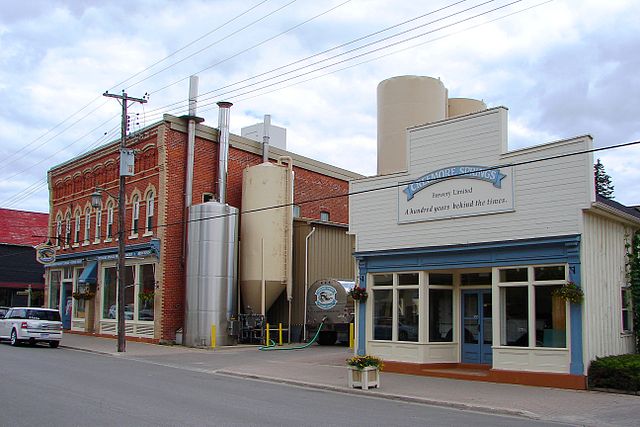Beer was introduced to Canada by European settlers in the seventeenth century. The first commercial brewery was La Brasseries du Roy started by New France Intendant Jean Talon, in Québec City in 1668. Many commercial brewers thrived until prohibition in Canada. The provincial and federal governments' attempt to eliminate "intoxicating" beverages led to the closing of nearly three quarters of breweries between 1878 and 1928. It was only in the second half of the twentieth century that a significant number of new breweries opened up. The Canadian beer industry now plays an important role in Canadian identity, although globalization of the brewing industry has seen the major players in Canada acquired by or merged with foreign companies, notably its three largest beer producers: Labatt, Molson and Sleeman. The result is that Moosehead, with an estimated 3.8 percent share of the domestic market in 2016, has become the largest fully Canadian-owned brewer.

Bottles of beers from several Canadian-based breweries placed on a table being used to play beer pong
Depiction of Alexander Keith's Brewery in Halifax, Nova Scotia, c. 1865–70
Queues outside a Commission des liqueurs du Québec store, 1945. The end of prohibition in Canada saw a number of its provincial alcohol authorities created and charged with the distribution of alcohol.
Exterior of Creemore Springs brewery in Creemore, Ontario. Creemore Springs was one of many microbreweries that was acquired by a larger "macrobrewery".
Prohibition in Canada was a ban on alcoholic beverages that arose in various stages, from local municipal bans in the late 19th century, to provincial bans in the early 20th century, and national prohibition from 1918 to 1920. The relatively large and powerful beer and alcohol manufacturing sector, and the huge working class that purchased their products, failed to convince any of the governments to reverse their stance on prohibition. Most provinces repealed their bans in the 1920s, though alcohol was illegal in Prince Edward Island from 1901 to 1948. By comparison, Ontario's temperance act was in effect from 1916 to 1927.
A police raid confiscating illegal alcohol, in Elk Lake, Ontario, in 1925.





